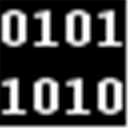Uncovering the Best Text::Amuse Alternatives for Your Markup Needs
Text::Amuse, a markup language designed for AMuseWiki, serves a specific purpose in document creation. However, for users seeking different functionalities, broader platform support, or a more extensive feature set, exploring Text::Amuse alternatives is a natural next step. Whether you're a developer, a writer, or a publisher, there are numerous powerful and flexible markup and document preparation systems available that might better suit your workflow.
Top Text::Amuse Alternatives
Looking to broaden your markup horizons beyond Text::Amuse? Here are some of the leading alternatives, each offering unique strengths in text formatting, document preparation, and publishing.

Markdown
Markdown is a text-to-HTML conversion tool renowned for its simplicity and readability. It allows you to write using an easy-to-read, easy-to-write plain text format, which is then converted to HTML. As a Free and Open Source solution available on Mac, Windows, and Linux, Markdown offers excellent Text::Amuse alternative with strong MarkDown support and basic text formatting, making it ideal for quick and clean web content creation.

LaTeX
LaTeX is a powerful document markup language and document preparation system built on the TeX typesetting program. It excels in producing high-quality technical and scientific documentation, offering unparalleled control over typesetting, flexible and powerful features for complex layouts, and robust publishing capabilities. As a Free and Open Source system available across Mac, Windows, Linux, and BSD, LaTeX is a comprehensive Text::Amuse alternative for those needing advanced document formatting.

pandoc
Pandoc is a versatile Haskell library and command-line tool designed for converting between various markup formats. If you need to convert files from one format to another, Pandoc is an excellent choice. This Free and Open Source tool, available on Mac, Windows, and Linux, supports a wide array of conversions including HTML to PDF, Word documents to PDF, and offers extensive support for LaTeX and Markdown. Its command-line interface makes it a powerful Text::Amuse alternative for developers and those needing format flexibility.

Groff
Groff (GNU troff) is a typesetting package that reads plain text mixed with formatting commands to produce formatted output. It's particularly strong for creating documentation and precise typesetting on Linux systems. As a Free and Open Source solution primarily for Linux, Groff offers a robust Text::Amuse alternative for users who require classic Unix-style document formatting and printing capabilities.

Textile
Textile is a lightweight markup language initially developed by Dean Allen, described as a "humane web text generator." It converts marked-up text into well-formed HTML. Available as Free and Open Source on the Web, Textile is extensible by plugins, offers Markdown support, and provides WYSIWYG capabilities, making it a flexible Text::Amuse alternative for web-centric content creation and simplified text formatting.

DocBook
DocBook is a widely used XML schema for creating technical documentation, maintained by OASIS. It provides a robust framework for structured writing, making it excellent for publishing and generating documentation across various formats. As a Free and Open Source standard available on Mac, Windows, and Linux, DocBook offers a powerful and industry-standard Text::Amuse alternative, especially for those involved in complex technical writing and publishing workflows, with good Markdown support.

Caoutchouc
Caoutchouc is a typesetting language designed to simplify document formatting by leveraging Markdown and AsciiMath, similar to LaTeX. As a Free, Open Source, and Self-Hosted solution, it provides an interesting Text::Amuse alternative for users looking for a typesetting system that combines ease of use with robust formatting capabilities, specifically benefiting from its MarkDown support.
Ultimately, the best Text::Amuse alternative depends on your specific requirements. Whether you prioritize simplicity, advanced typesetting, cross-format conversion, or specialized documentation, the options above provide a solid starting point for finding the perfect markup solution for your projects.